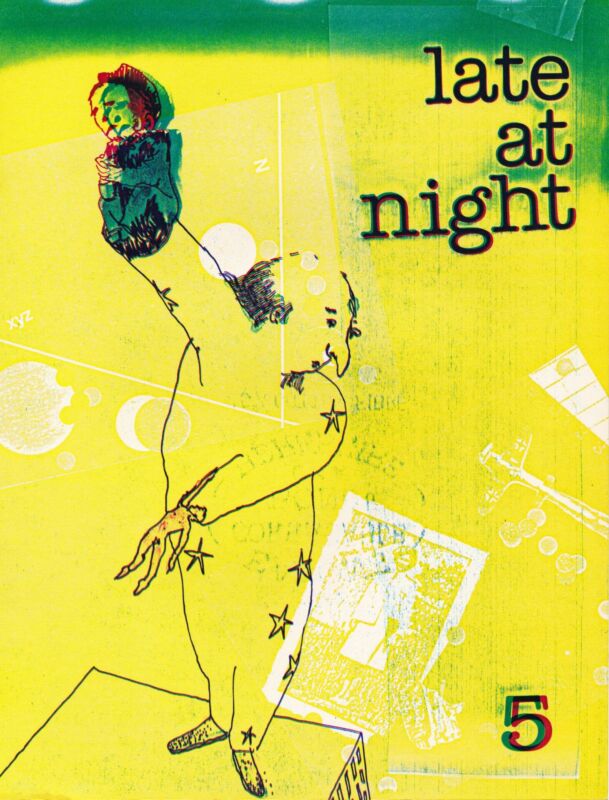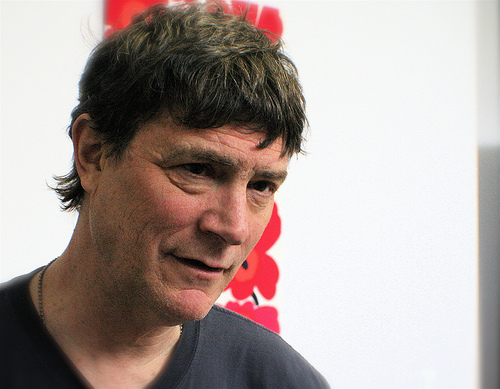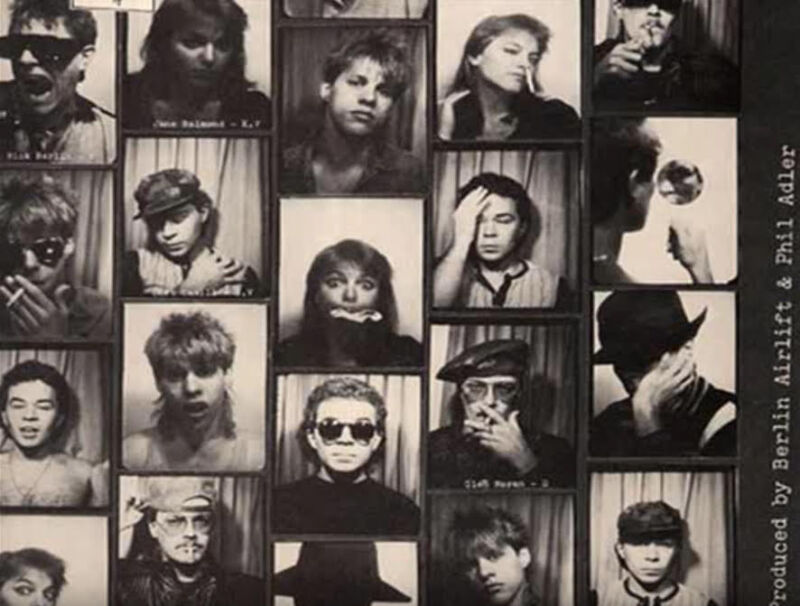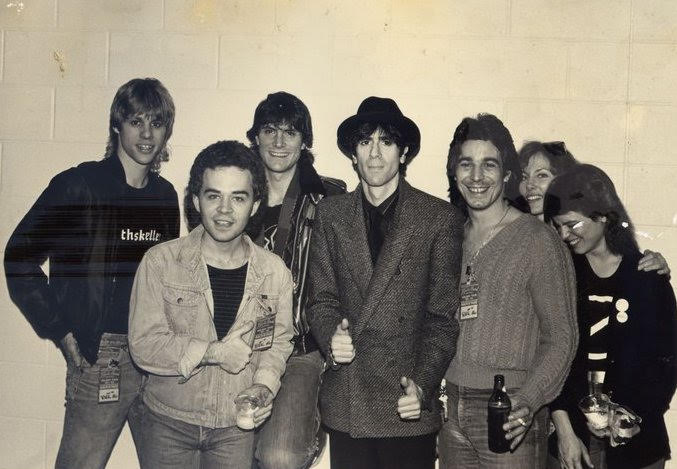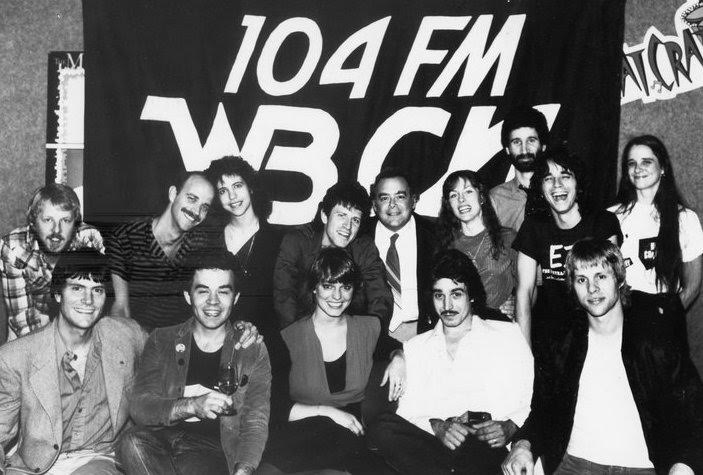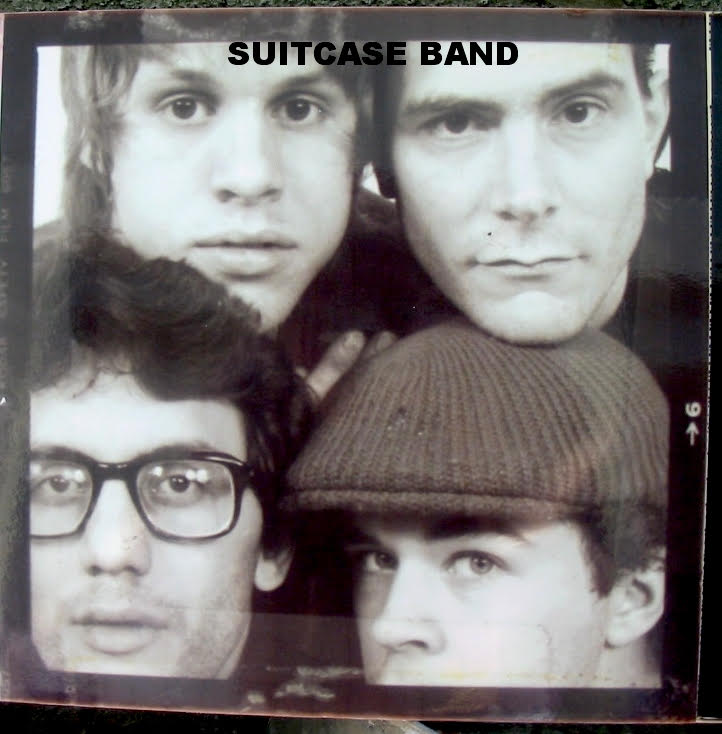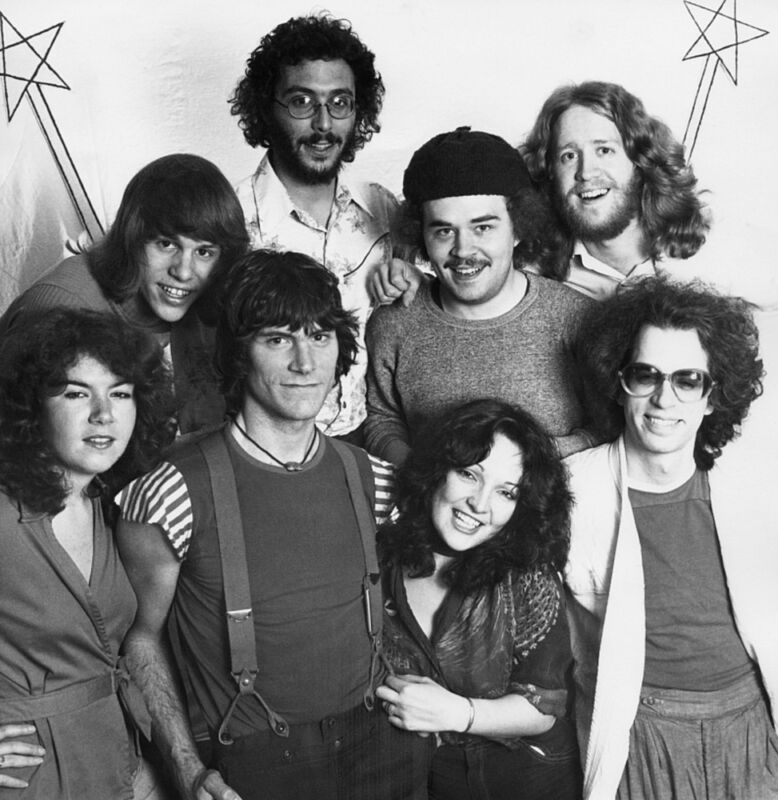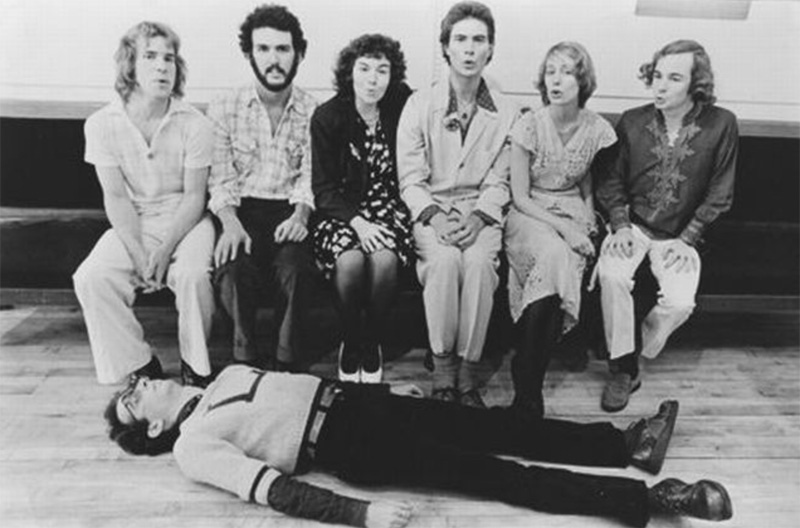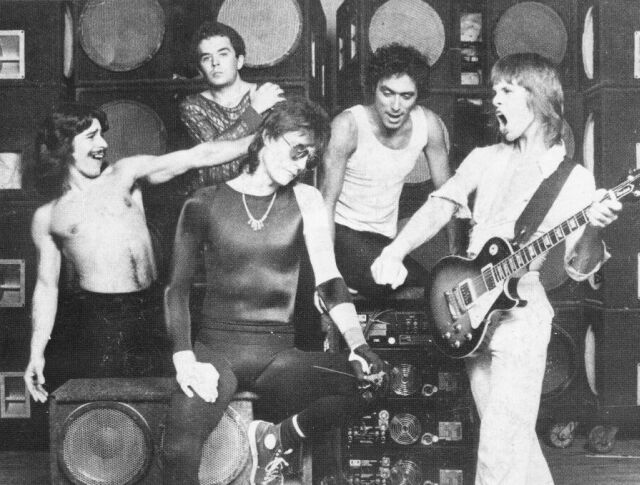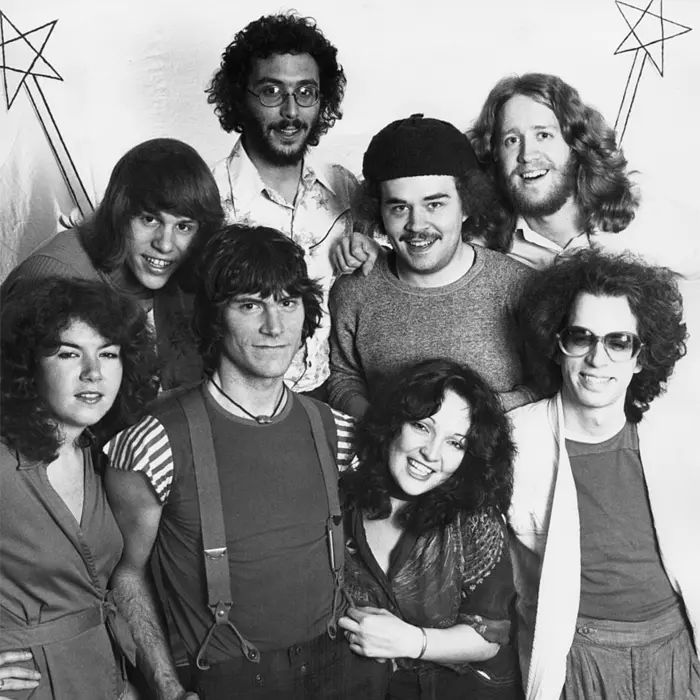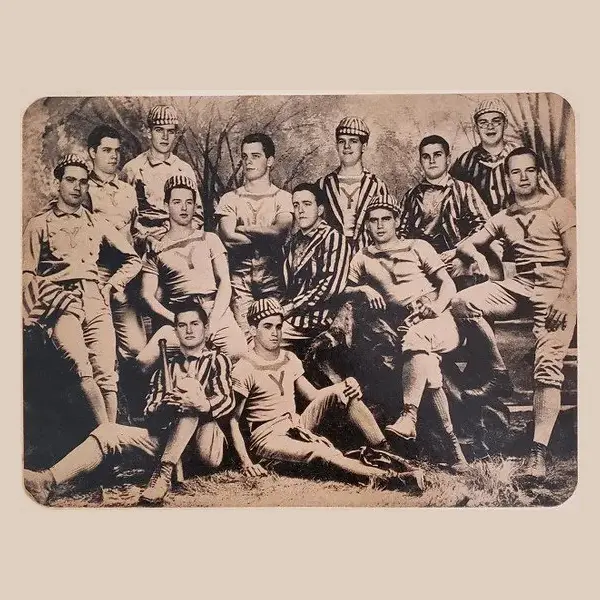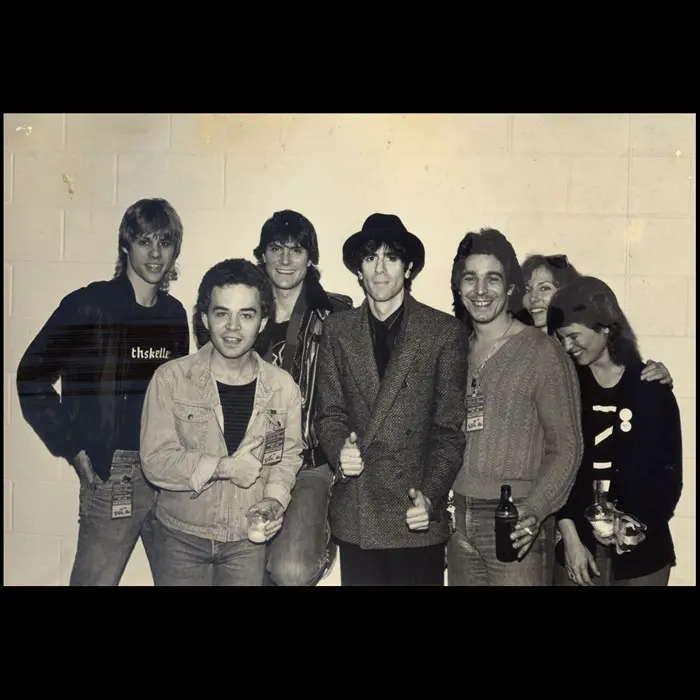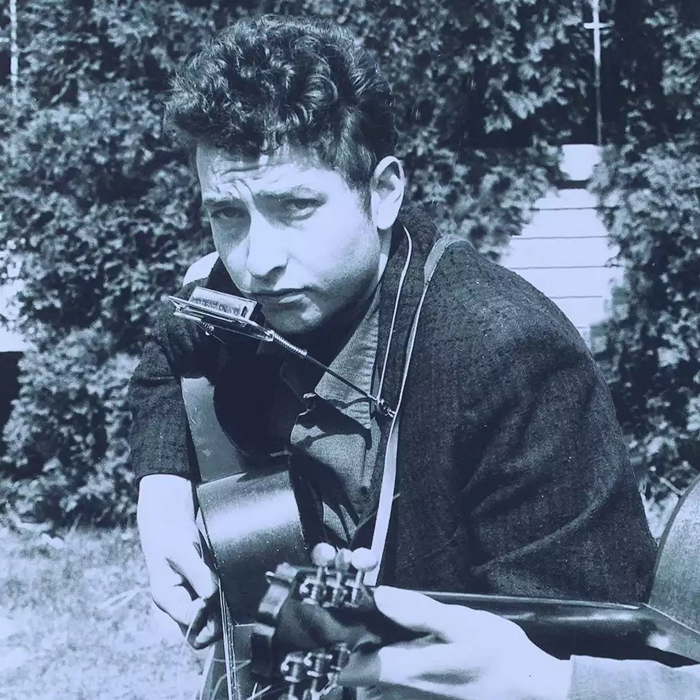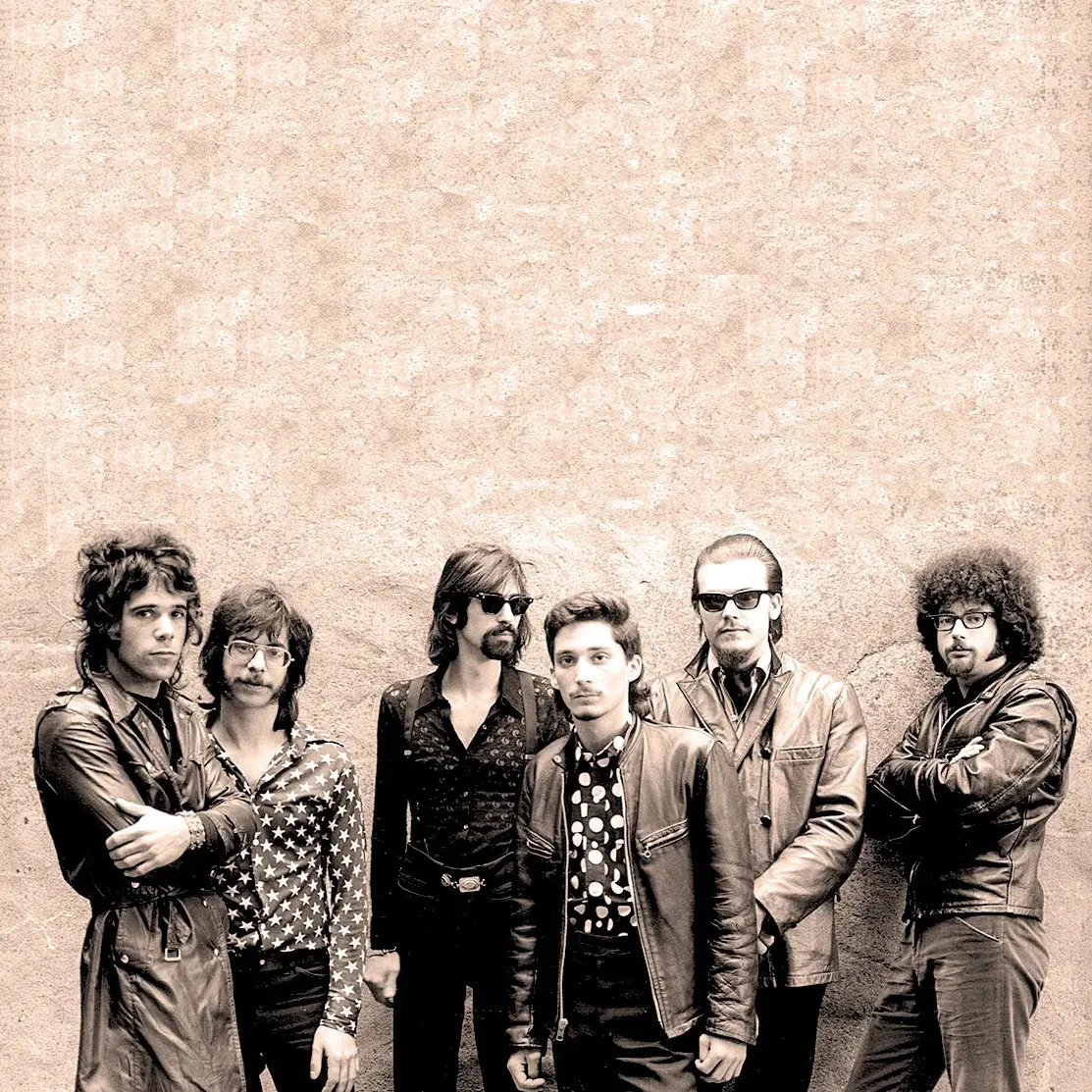Rick Berlin

Rick Berlin is one of New England’s genuine music warriors, advancing his art persistently while wielding a battered sword against an often unsympathetic, sometimes abusive music industry. Arguably, he hasn’t made things easy for himself, as the widely respected singer-songwriter-musician has given little quarter to compromise over the decades. The reward hasn’t been stardom, but instead his unique place as a true Boston legend whose catalog spreads across half dozen bands and multiple solo efforts since 1974. People can say many things about Rick Berlin, but the term “sell-out” would never enter the conversation.
MUSICAL BEGINNINGS, ORCHESTRA LUNA
Born Rick Kinscherf, Berlin followed his sister north from New Haven to settle in Somerville, Massachusetts in 1970, shortly after his graduation from Yale. He’d begun writing songs by that time, had performed with a capella group The Whiffenpoofs in college and continued his artistic pursuits by purchasing a piano with his meager funds and hauling it into his apartment. Soon, some of his new songs filled the repertoire of a band formed around Berlin, his sister Lisa and a second singer, Liz Gallagher. As more musicians joined, the group moved across town to Allston and began rehearsing and working out various arrangements, which was not an easy task for a band that touched the worlds of Broadway musicals, folk, rock, jazz and beat poetry. The lineup peaked at seven members when poet and spoken-word artist Peter Barrett joined; he dubbed the young assemblage Orchestra Luna.
Kinscherf (the “Berlin” wouldn’t arrive till later) booked his expanded musical vision into a residency at a club called Jeremiah’s in Allston and Orchestra Luna became an immediate local hit. Performances were anything but typical bar band fare; the group might be belting out a faithful rendition of “Heart,” the hit baseball anthem from the 1955 musical “Damn Yankees,” or plowing into the 12-minute epic “Doris Dreams” with its narrations, Zappa-esque freakouts and extended guitar solo from jazz devotee Randy Roos. Within just six months, the crowds that jammed Jeremiah’s led to a cover story in The Boston Phoenix and interest from major labels including Epic Records, which signed the group to an album deal.
In late 1974, Epic released the band’s self-titled debut album, produced by offbeat British pop vocalist and songwriter Rupert Holmes, who was well inclined to appreciate the band’s far-ranging stylistic interests. Though the label promoted the album enthusiastically, it sailed briefly in the wind before dropping like a stone. In 1980, Berlin (by then) told The Boston Phoenix it sold about 12,000 copies (and was big in Israel for some reason). As eclectic and brave as they were, Orchestra Luna couldn’t find a large audience, although the band’s subsequent gigs in Boston and as regulars at CBGB in New York City continued to draw crowds. Staff changes at Epic, which included its president and other top brass, led to an altered commercial vision that did not include the band and most members moved on after the group was ousted from the Epic roster. A second iteration of the group that included future Meatloaf singer Karla DeVito emerged, and with it more record label maneuverings, but hope for another major-label deal failed to materialize.
LUNA, “HOLLYWOOD,” TITANIUM RECORDS LITIGATION
By 1978, Orchestra Luna had run its course and Berlin shook the ensemble with its soaring female backups, narrations and cabaret influences into a leaner, five-person nucleus focused clearly on rock ‘n’ roll. Retaining bassist Chet Cahill, keyboardist Robert Brandon and drummer Joe Petruzzelli, Berlin officially retired the word “Orchestra” from the band name and Luna emerged, it’s only connection to the Broadway fascination of yore being its cover of The Kinks’ “Celluloid Heroes.” The ad-libbed onstage monologues and imposing presence of the six-foot-tall Berlin next to his fiery blonde guitarist Steven Paul Perry aroused frequent comparisons to Ziggy Stardust-era Bowie and his stalwart Spider from Mars Mick Ronson. Luna took stages in Boston and New York City by storm and recorded a single that garnered significant local airplay, “Hollywood,” on the independent label Titanium Records.
Steve Popovitch, head of Cleveland International Records (which had released Meatloaf’s hugely successful Bat Out of Hell album in the fall of ‘77), heard Luna in the studio and wanted to sign the group immediately. Once again, however, the ire of the music industry rose up and prevented this latest Cinderella story from becoming reality. While making their first single for Titanium, Berlin and band had inadvertently surrendered control of their name and recording rights to the label, which refused to release the band from the agreement without a substantial financial payback. Cleveland International balked at settling Luna’s costly squabble and the golden opportunity swiftly lost its luster. Luna and Titanium locked horns in litigation, which prevented the band from recording or working under their name, so Berlin performed solo as Rick Berlin Backwards for a time and joined with Luna members minus Petruzzelli to play semi-acoustically as The Suitcase Band.
BERLIN AIRLIFT, NOTABLE SINGLES, PROFESSIONALLY DAMAGED
By early 1981, as the legal battle with Titanium dragged on, Berlin walked away from the exhausting and expensive fight to regain the rights to the name Luna, choosing to morph his musicians into a new unit called Berlin Airlift with the addition of keyboardist Jane Mangini. Their first single, “Over the Hill,” found favor on Boston radio as a cassette and became a sizable local hit. Renewed label interest arrived from Handshake Records, distributed by conglomerate CBS, and Berlin Airlift recorded its debut LP in 1982. All looked rosy for Berlin and his group after “Over the Hill” and a second song, “Don’t Stop Me From Crying,” found spots on rock radio playlists, but fate stepped in cruelly once again when Handshake went belly up, running out of money just weeks after the album Berlin Airlift hit record store shelves.
By this time, you’d figure Berlin would have thrown up his hands, quit music and become a Broadway actor or insurance salesman. After all, the music biz had body-slammed him onto the mat with three massive blows. How much can one guy take? To his and the band’s credit, though, they booked time to record the new songs Berlin had come up with and put out six of them in a 12” EP aptly entitled Professionally Damaged in 1983, released by the independent Lo-Tech Records. Berlin’s local hit-making run wasn’t interrupted in the least, with the seven-minute epic “Hunger Strikes” becoming a Boston smash. Berlin Airlift flew on into 1984, opening shows for The J. Geils Band and headlining their own sold-out gigs in town, but landed permanently shortly thereafter.
RICK BERLIN – THE MOVIE, ROME IS BURNING, OTHER BANDS, ALBUMS
Berlin continued to create, however, because – as you’ve probably gleaned by now – this act is essential to his very being. He formed a new group in 1985, Rick Berlin – The Movie, which featured a smoother, more keyboard-based sound and some choreography in its shows. Always writing and recording, he penned another local hit, “Rock ‘n’ Roll Romance,” which won him the award for “Indie Songwriter of the Year” at the Boston Music Awards in 1987. Two years later, that band was history, but Berlin moved onward in another unit called Rome is Burning. Self-released solo music followed in addition to screenplays, musicals and a new group named The Shelley Winters Project, which recorded a six-song EP in 2001 and the album I Hate Everything But You a year later. Like mile markers on a highway flashing by, that band vanished by 2005 and Berlin issued more solo material: Live at Jacques (recorded at a Boston drag bar), Me & Van Gogh in 2006, Old Stag in 2008 and Paper Airplane in 2010.
In 2011, Berlin joined forces with The Nickle and Dime Band to create his longest-ever collaboration. With five musicians in the basic group, including Jane Mangini on keyboards (when she wasn’t on the road with Trans-Siberian Orchestra), the full ensemble includes four horn players and up to three vocal backups. As of this writing, the group has recorded eight albums and EPs, the latest having dropped on Berlin’s 80th birthday in April 2025. And that tells you something: some 60 years since launching his musical career, Berlin remains at the swirling center of a creative maelstrom that never runs out of ideas and still finds the energy and excitement to fulfill those whims. Oh, and I haven’t even mentioned the books he’s written, have I? You’re on your own, though; I’ve run out of space.
(by Carter Alan)
Carter Alan is a former WBCN deejay now heard on WZLX-FM in Boston. He’s the author of Outside is America: U2 in the U.S. (Faber & Faber, 1992), U2: The Road to Pop (Faber & Faber, 1997), Radio Free Boston: The Rise and Fall of WBCN (University Press of New England, 2013) and The Decibel Diaries: A Journey Through Rock in 50 Concerts (University of New England Press, 2017).

